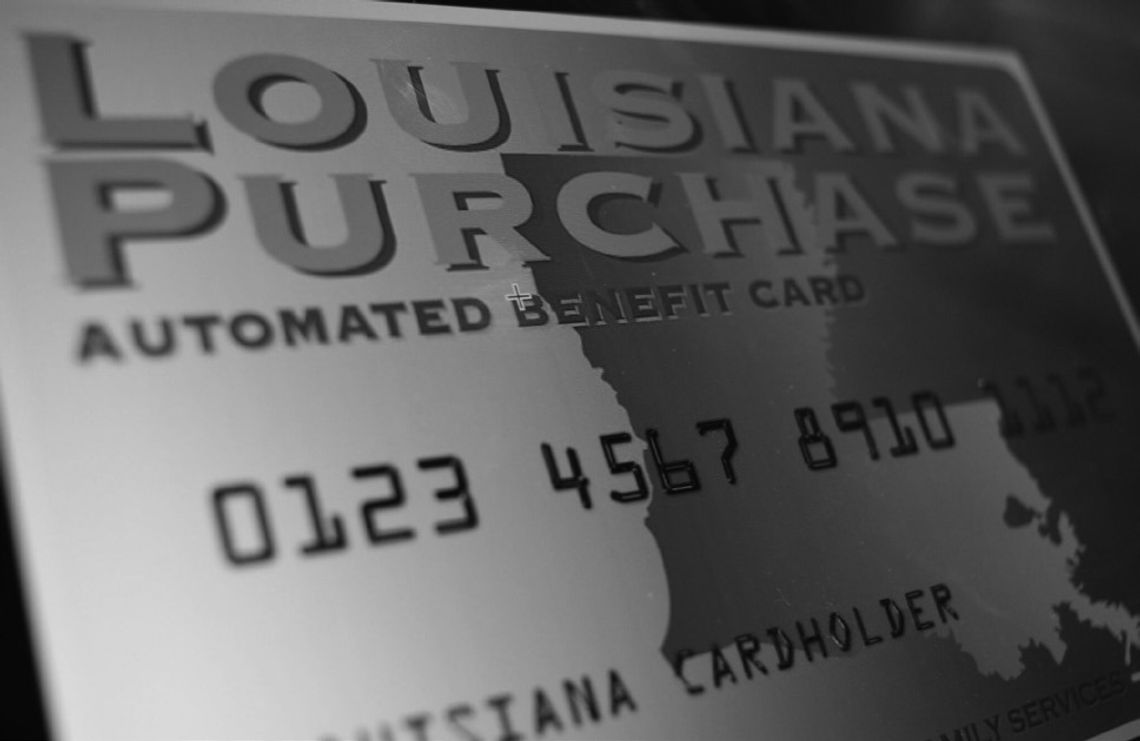Louisiana political leaders are preparing to use $150 million monthly in state funding to help continue food assistance benefits while the federal government shutdown in Washington, D.C., continues, Gov. Jeff Landry and legislators announced Friday.
“I mean, it’s a choice between using money that we have or people going hungry,” Senate President Cameron Henry, R-Metairie, said in an interview. “That’s why we have the fund balances that we have.”
Landry issued an executive order Friday directing the state to cover the costs of the federal Supplemental Nutrition Assistance Program, or SNAP, for Nov. 1-4. The Louisiana House of Representatives followed with a 97-0 vote Friday for an “urgent request” that would allow state money to be used for the program until the federal shutdown ends.
The Louisiana Senate is expected to approve the House’s resolution today (Wednesday).
Advocates for low-income residents praised the legislature’s decision to preserve access to food assistance.
The federal government typically covers the total cost of SNAP but is not doing so while the U.S. government is shuttered. Congress is at an impasse over when and how to cover federal subsidies that make health care plans more affordable and has stalled on approving a funding bill needed to keep the government operating.
Landry’s emergency declaration on SNAP is more restrictive than what lawmakers showed a willingness to support through their resolution. His order only extends benefits for a short period of time, the first four days of November, but legislators want to preserve SNAP benefits for multiple months if necessary, their leaders said.
In Louisiana, 793,000 people receive SNAP benefits that help them purchase food every month, according to the Landry administration. That equates to 17% of the state’s total population of 4.65 million.
Henry said it’s not clear yet whether the state will be able to find enough money in the short term to avoid a break in benefits for everyone who receives SNAP assistance. The initial round of support will come from moving money around within the state Department of Health, which has an annual budget of $25 billion.
“That’s what we don’t know, whether the department has $150 million in cash available [immediately],” Henry said.
The priority for Landry and lawmakers is to ensure seniors and people with disabilities who are enrolled in the program – and receive their benefits at the beginning of the month before others – see no delay in benefits at the end of next week, he said.
If they need to pay for other benefits later in the month, the state has other pots of money it can use, but it would take longer for Landry and lawmakers to access them. The legislators hope the health department can find enough money for the entire month of November, such that a delay in SNAP benefits for anyone wouldn’t be necessary.
Lawmakers are also making plans to draw down money from a state savings account, called the Revenue Stabilization Trust Fund, to backfill money the health department spends and to pay for future SNAP benefits if the federal shutdown extends beyond November, McFarland said.
Legislators can tap the account, which contains over $2.7 billion, for statewide emergencies, but the vote required to do so could take close to a month, McFarland said. Lawmakers would be required by law to vote remotely, and leadership is legally required to give them several days to receive and send back the ballots, he said.
Louisiana will be paying for the food assistance to continue, even if the federal government doesn’t reimburse the state for its missed months of service.
A memo the U.S. Department of Agriculture released Friday indicates states such as Louisiana, who use their own money to cover SNAP benefits during the government shutdown, are not likely to be reimbursed.
“There is no provision or allowance under current law for States to cover the cost of benefits and be reimbursed,” the memo says, while also noting that “the best way for SNAP to continue is for the shutdown to end.”
But there’s a dispute over whether the federal government might be legally obligated to cover SNAP benefits during the government shutdown.
Sharon Parrott, a White House Office of Management and Budget official during the Obama administration who now leads a leftleaning think tank, said Thursday in a statement that the USDA is required by law to use contingency funds set up to cover SNAP.
Parrott, the president of the Center on Budget and Policy Priorities, said the multiyear contingency fund is “billions of dollars that Congress provided for use when SNAP funding is inadequate that remain available during the shutdown — to fund November benefits for the 1 in 8 Americans who need SNAP to afford their grocery bill.”
Trump officials at the federal agriculture department disagreed, saying the contingency funding for SNAP is only supposed to be used during natural disasters or a similar emergency and not for a federal shutdown.
Ariana Figueroa and Shauneen Miranda contributed to this report from Washington D.C.


